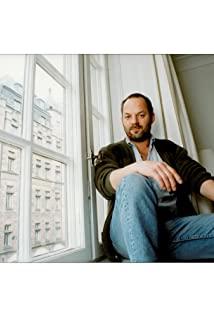As Bergman's last film, "Fanny and Alexander" unfolds with a grand and gorgeous narrative structure that can be called the "Swedish version of "Dream of the Red Chamber" - intertwined between the rise and fall of the family and the love-hate entanglement, full of prophecy and The dream of the symbol is a metaphor for the past and the future, the living and the dead have a dialogue in the ever-changing time and space, and finally ends with Bergman's ultimate remembrance of religion and God. In Bergman's narrative space, God has never appeared as a traditional "Messiah" in the traditional survival structure of the characters, while Bergman's inquiring meditation on religion has deconstructed the time and space of the place where religious allegory occurs. . However, the gloom and gloom of the adult's perspective and the lack of dreams are not enough to support such a narrative lens. Alexander's child's perspective assumes such a broken space of manifestation: ① Alexander saw the undead of Bishop Edward's dead ex-wife and daughter appearing to him. She cried about how Edward had brutally imprisoned and persecuted them to death, and during the period of being punished and confinement by Edward, he saw Edward's dead daughter accusing him of framing his father, and oppressing Alexander to the point of a nervous breakdown. Edward heard from the housekeeper Alexander's helpless expression when he persecuted his wife and daughter to the point of death. Alexander shuddered in the confinement room and confronted Edward's deceased daughter's soul complaint. An eternal mystery. In fact, both Edward and Alexander were terrified by the appearance of a "ghost", and Alexander's spiritual child's perspective took on the deep fear and the "original sin" of their souls - the darkness, cruelty and the "original sin" of Edward's soul. Paranoid, Alexander fell into the nihility of faith and the Oedipus complex between Hamlet-style hesitations and worries.
② Jacob told Alexander the story of an old man and a young man about searching for "spring water" and "unknown places", throwing Alexander directly to the "absence", "searching for gods" and "unknown places" faced by human history in the 20th century. The predicament of "memory" - Alexander was wandering with many of his subjects, and he saw Edward's housekeeper walking with blood on his hands and walking in the shape of a victim, looking helpless; The water comes from the fire, holy and loving like the Virgin Mary, and like Mary Magdalene who was freed from suffering and sin and held water for the suffering Jesus. "Old Testament Deuteronomy" chapter 33 verse 13 says: "On Joseph said, The Lord blesses his land, the treasures of heaven, the dew, and the springs that are hidden in the land." Alexander in the exiles Between the wilderness and the "unknown land", he is originally attached to his mother, and the "Oedipus complex" of the past has also been redeemed at the same time by the shadow of Mary Magdalene on his mother. Motherhood and holiness At the same time, the brilliance of the Virgin united on her body, and the "heaven" firelight and the "underground" spring water reflected on her image revealed love, hope and redemption to Alexander.
③ In the process of rehearsing "Hamlet", Alexander's father Oscar, playing the ghost of Hamlet's father, died unexpectedly. Later, Oscar himself returned to Oscar as a ghost. After the death of his stepfather, Edward, whom Alexander hated, he also appeared in front of Alexander as a ghost. The narrative category of Hamlet’s expansion from prophecy to “life-existence-death” was realized in Alexander’s vision—Hamlet’s father’s soul itself has a spiritual meaning of “death”, indicating that Hamlet will suffer in life from now on. The importance of "life" and "death", and Oscar's sudden death on the stage as a ghost almost directly transformed this implication into himself and passed it on to Alexander. Unlike Hamlet, Alexander did not die with his stepfather, so his stepfather's dead soul, as well as his own fears and complexes, will still circulate this Hamlet-style narrative structure and Alexander's soul-remembering about life.
④ Isma, who was incarcerated because he was regarded as "mad" and "dangerous", accurately stated the hatred of Edward in Alexander's heart. The camera synchronously aimed at the tragic death in Isma's whisper to Alexander. Edward in Fire. Just as Foucault interprets the revelation of truth in "Madness and Civilization" with irrational groups outside the fringe of the mainstream social structure, such as fools and madmen, Bergman uses Isma, an enlightening madman, to complete a revelation of truth. This kind of "destruction" and "rebirth", that is, the tragic end of Edward's own life and the complete opening of the meaning of his life of piety, is also the beginning of the release of Alexander's father-killing complex and the long-term burden of his own soul.
The whole film ends with the joy of the birth of a new life in the happy atmosphere of the Ikoda family, and extends the questioning of God and the redemption of life with a kind of flawed and broken consummation. The deceased life has not fully understood life and death, and has not achieved complete redemption; the living, accompanied by the deceased's past and the confusion and incompleteness of their own lives, ponder and live toward the potential place of redemption. Perhaps, this Bergman's ultimate work has drawn an end to the long-term questioning of his camera career, overflowing with the light of reunion, and the broken place is like the broken mirror of the world, calling for the real Full redemption in love and tolerance, and a desire to echo the realm of true divine fullness.
View more about Fanny and Alexander reviews











